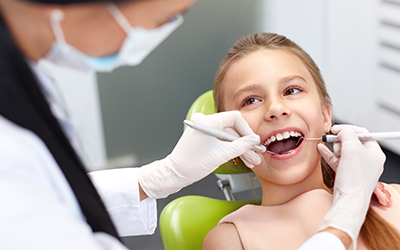Posted on Jan 22, 2024
File ID 61070246 | © Puhhha | Dreamstime.com

As parents, ensuring the well-being of our children is a top priority, and their oral health plays a crucial role in their overall development.
Cavities in children can be a common concern, but early detection and intervention are essential for maintaining healthy smiles.
In this blog, we’ll take a look at some key signs to identify if your child has a cavity and the role of a kids’ dentist in ensuring optimal oral health.
One of the early indicators that your child may have a cavity is a sudden change in behavior. If your child becomes irritable or seems uncomfortable, especially while eating or drinking, it could be a sign of dental discomfort.
Children may not always express their pain verbally, so paying attention to behavioral cues is crucial.
Children with cavities often experience heightened sensitivity to temperature changes.
If your child starts complaining about discomfort when consuming hot or cold foods and beverages, it could be an indication of enamel erosion and the development of cavities. Addressing this sensitivity promptly can prevent further damage.
Inspecting your child's teeth regularly can reveal visible signs of cavities. Keep an eye out for white or brown spots on the teeth, discoloration, or even visible holes. These signs may indicate tooth decay, and consulting with a children's dentist is crucial for a proper diagnosis and treatment plan.
Older children may be able to articulate their discomfort more clearly. If your child complains of a toothache or localized pain in their mouth, it is essential to take their concerns seriously.
Scheduling a visit to a children’s dentist as soon as possible can help identify the source of the pain and address it before it worsens.
Children may instinctively avoid brushing or flossing if they associate these activities with pain or discomfort. If your child suddenly shows resistance to oral hygiene practices, it's a red flag that should not be ignored.
If you have any concerns about cavities, discuss them with a specialist in dentistry for children who can assess your child's oral health and provide guidance on managing discomfort. At Firestone Pediatric Dentistry & Orthodontics, we are dedicated to providing top-quality dental care for children. Book an appointment now, and let us protect your child’s oral health.